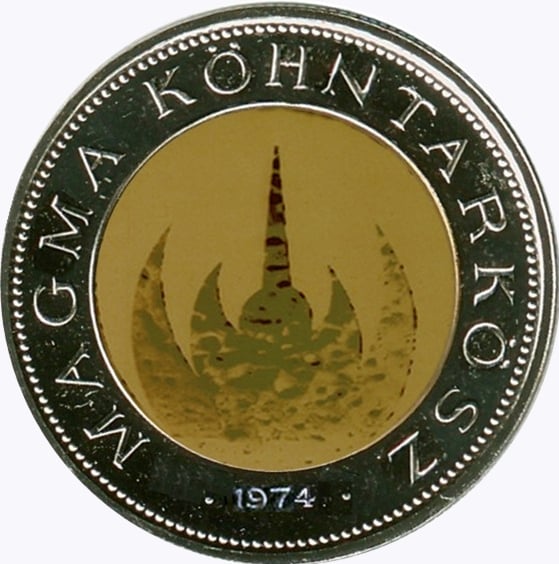Progarchives.com has always (since 2002) relied on banners ads to cover web hosting fees and all.
Please consider supporting us by giving monthly PayPal donations and help keep PA fast-loading and ad-free forever.
/PAlogo_v2.gif) |
|
Post Reply 
|
Page <12 |
| Author | ||||
someone_else 
Forum Senior Member 

VIP Member Joined: May 02 2008 Location: Going Bananas Status: Offline Points: 23996 |
 Posted: August 05 2014 at 01:40 Posted: August 05 2014 at 01:40 |
|||
|
I don't know if "green consumers" are less kind to others and more likely to cheat and steal, but I do suspect that they are susceptible to being hoaxed.
|
||||

|
||||
 |
||||
Blacksword 
Prog Reviewer 

Joined: June 22 2004 Location: England Status: Offline Points: 16130 |
 Posted: August 05 2014 at 02:50 Posted: August 05 2014 at 02:50 |
|||
 Don't open that ca of worms.. The discussion is around 'moral balancing' not the gulliblity or otherwise of greenies. |
||||
|
Ultimately bored by endless ecstasy!
|
||||
 |
||||
Dean 
Special Collaborator 

Retired Admin and Amateur Layabout Joined: May 13 2007 Location: Europe Status: Offline Points: 37575 |
 Posted: August 05 2014 at 13:44 Posted: August 05 2014 at 13:44 |
|||
 yeah, I went a tad OTT there and my crass generalisation was indeed harsh. However, I think this particular study is specious and perhaps displays a degree of bias confirmation. To be taken seriously as a science it needs to raise the standards. yeah, I went a tad OTT there and my crass generalisation was indeed harsh. However, I think this particular study is specious and perhaps displays a degree of bias confirmation. To be taken seriously as a science it needs to raise the standards.
'Moral balancing' isn't trading-off a one act with a morally opposite one, it is the 'golden mean' between two extremes. In the case of going green, moral balancing would be choosing mid-priced farm-assured instead of the expensive free-range or cheap battery-farmed. Conversely trading-off buying the ethically questionable fois gras by subsequently purchasing ethically wholesome free-range eggs would not be a moral balance (it is debatable whether that is even guilt-easing). Moral balancing is something that is applied before, not after, the act. It's probably worth mentioning that "green consumer" as used in this study is too vague and not defined. There is also more to going green than just consumerism, but since consumerism was the only measure of "green" used in the study that's the only part of it I'm referring to here. Green-consumerism does not necessarily involve any morality at all: for example 'organic' is a green choice but not a moral choice. In that respect it is a selfish choice because it is perceived that 'organic' is better for the consumer, the organic-only green consumer has made a personal choice that affects no one but themselves. Green choices that are moral would be those that are concerned with ethics in relation to the well-being of the animal or the producer, examples of those would be free-range and fair-trade. However even those can be selfish choices based upon the perception that they are also better products for the consumer, in fact that is exactly how they are marketed - they taste better, they are healthier, they are better for you. In contrast non-green products are depicted as unhealthy, full of nasty chemicals and bad for you. It could be argued that green-consumerism is purely about "self" and thus green-consumers are inherently self-centred and 'mean'. The problem with psychological studies is they are subject to psychology themselves, that is the nature of the 'science'; both the participants and those conducting the study are part of any experiments conducted. Assessing morality in a lab experiment (if such a thing is ever possible) cannot avoid hoaxing and gullibility since the experiments carry a level of inherent duplicity within them: the participants were randomly assigned to "green" and "conventional"; they were told the tasks were unrelated; they were told "they had been randomly paired with another person in a different room, when there was none" and that "they had been randomly assigned to the initiatorís role (even though they all played that role)". Also, the "dictator game" used in the study is more a measure of maturity than morality and is related to self-image and how they perceive that image is seen by others. Edited by Dean - August 05 2014 at 13:46 |
||||
|
What?
|
||||
 |
||||
Equality 7-2521 
Forum Senior Member 

Joined: August 11 2005 Location: Philly Status: Offline Points: 15783 |
 Posted: August 05 2014 at 21:07 Posted: August 05 2014 at 21:07 |
|||
Yeah after having read through that this seems like rubbish. Priming results like these have been failing to hold up to repeatability, and I would be surprised if this one didn't as well. Also, was this written in word? What kind of academic paper is this? |
||||
|
"One had to be a Newton to notice that the moon is falling, when everyone sees that it doesn't fall. "
|
||||
 |
||||
Post Reply 
|
Page <12 |
| Forum Jump | Forum Permissions  You cannot post new topics in this forum You cannot reply to topics in this forum You cannot delete your posts in this forum You cannot edit your posts in this forum You cannot create polls in this forum You cannot vote in polls in this forum |